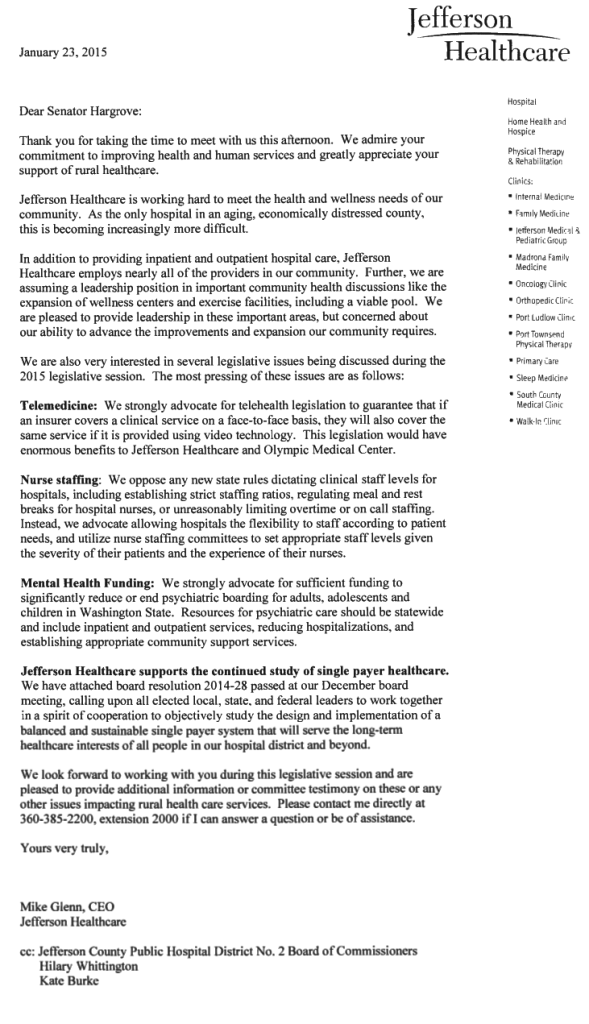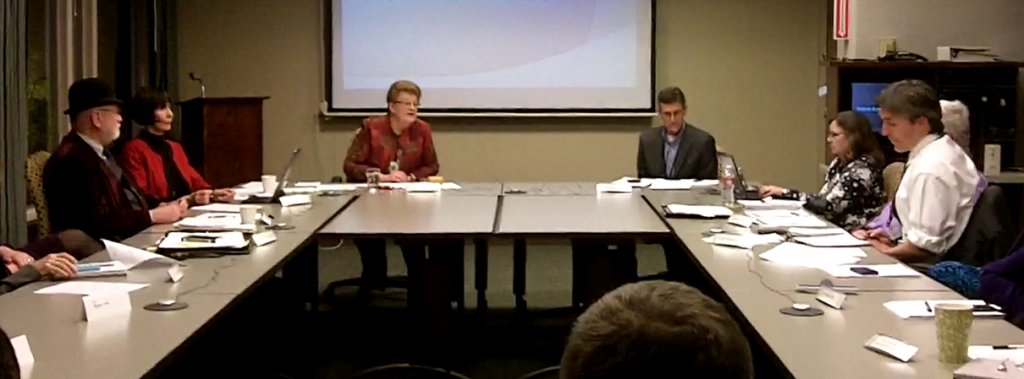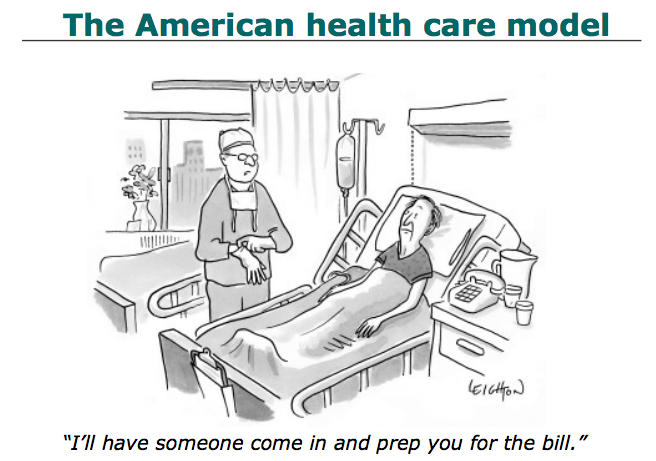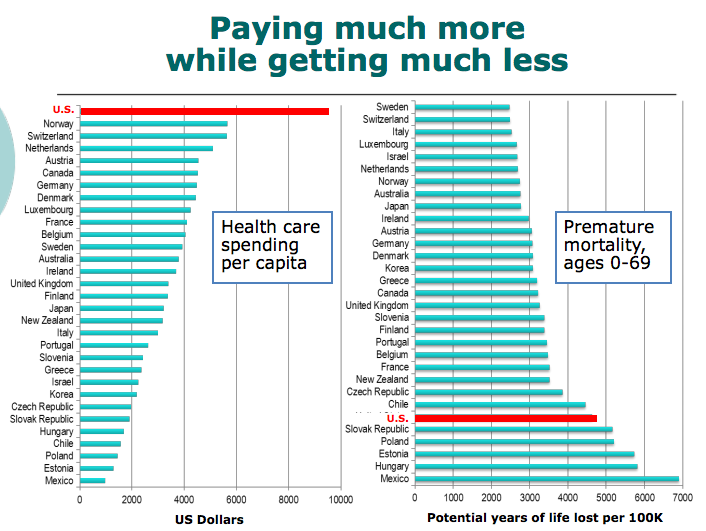Author Archive
 Jefferson Healthcare Commission Meeting – 06/29/2016
Jefferson Healthcare Commission Meeting – 06/29/2016
In Chelan, Wa the Jefferson Healthcare Board of commissioners met in regular session following the annual WSHA conference. Since our normal audio recording equipment does not travel with us, I recorded the meeting with my own handheld digital recorder.
To my surprise, the majority of my fellow commissioners took exception to me recording the meeting. When I refused to stop recording the meeting, they decided to conclude the meeting rather than continue. You can hear commissioner De Leo leave the meeting in protest of my recording. He later rejoins the meeting at about the 5:50 mark.
As I say during this brief meeting, I make sure a recording of all meetings is made because I feel it is essential for me to do my job. Everyone in that room needs to be held accountable for what we say- because what we say and do matters. Without a complete record of the meetings, too much time can be spent arguing about what we agreed to or said in the past, rather than discussing actually important and difficult subjects.
I truly thought this board was done debating the issue of recording our public meetings. A year earlier, I recorded our regular meeting in Chelan, WA in the exact same manner, but last year none of the objections raised during this year’s meeting were raised. The recording a year ago is here.
If you listen to the recording the following are the two objections raised as best I can discern.
- A hospital lawyer has advised that if a commissioner records the meeting, then the recording may be argued to be an official record and therefore needs to be archived with other recordings. The resolution to this point, as I say in the meeting and have said since this point was first raised two years ago: I will give the recording to the hospital to store with the other recordings.
- The second objection seems to be referring to the board policy on recording meetings which was intentionally drafted in a way to give the board the freedom to not record a meeting if it so chooses. The reason for this flexibility was to allow the board to meet with people off campus who might be disinclined to meet with us if we insisted on recording the meeting. If we insisted on recording such meetings, we might hamper our ability to serve our district if our access to elected officials became more limited. The policy in place at the time of this meeting reads as follows:
In addition to the written minutes of regular and special meetings, official audio recordings of all open public meetings may be made by board designated staff and said recordings will be processed, retained and made available in accordance with the Open Public Records Act.
Since this meeting was not with any outside entities and was merely a meeting of our board off campus, there was no reason for it not to be recorded. So I recorded it as I did the meeting in Chelan the year prior. Moreover, though this policy gives the board the choice to record a meeting or not, it does not take away every individual commissioners right to record the meeting if they so choose. I continue to be unsure exactly why my fellow commissioners decided to suddenly raise these objections and refused to continue the meeting while it was recorded. Below is the recording I made.
 Mental Health in Jefferson County
Mental Health in Jefferson County
Anyone who would like to hear more detailed discussion of the work exploring the possibility of building an inpatient psychiatric facility here in Jefferson County is encouraged to listen to the April 20, 2016 Jefferson Healthcare Board meeting. The discussion of the mental health facility begins at 44:20
 Access to care will remain a challenge without a Single Payer system
Access to care will remain a challenge without a Single Payer system
I came across this article in the Summer newsletter from Physicians for a National Health Plan. In it, a practicing physician in Iowa writes:
Potential 2016 presidential candidate Sen. Bernie Sanders has stated: “There is one major country on Earth that does not guarantee health care as a right for all. There is one major country on Earth that spends twice as much per capita on health care as almost any other. There is one major country on Earth where private insurance companies and drug companies earn huge profits. Guess which country.”
As a physician in private practice I abhor each coming new year. This is the time when health care practices have to deal with patients with new insurance policies and former policies with stringent regulations. This year, more than any previous time, I’m noticing more and more folks who have high deductibles — allowed up to $6,600 with the Affordable Care Act (Obamacare). And for some folks that means they can’t see me or they have to greatly limit the number of times they can receive services from me.
In some cases I have to refer middle class folks with these high deductibles to places with sliding scales, places I used to refer indigent folks with no insurance. Not seeking or delaying care can lead to delayed diagnoses and possible tragic consequences. And as Michael Moore has pointed out, now it’s the middle class who are hit with being under or poorly-insured while more indigent folks now have an expansion of Medicaid. The confusing mix of deductibles, co-pays, co-insurance and limitations on what services can be provided are now daily frustrations with our lack of guaranteed health care for all.
A single-payer system of reimbursement for health care services has never seemed more in need, with 38 percent of Americans citing health care costs they pay out of pocket as a somewhat or significant level of stress, according to the physician website Doximity. Health care bills could go to one payer — an expansion and enhancement of Medicare — with a great reduction in administrative costs for paying the bills and for providers of health care and their offices. Single payer does not imply a system like the Veterans Administration, where all the providers are employees, but one that allows for private as well as employed practices.
The article quoted above gives you a glimpse into the reality of access to healthcare. It is not all about having insurance. Under the affordable care act, more and more people are becoming under insured with deductibles too high for adequate access to care.
Why is single payer the answer? I found the answer put very eloquently in another article by James G. Kahn, M.D., and Paul HOfmann, Dr.P.H. They write:
Research from dozens of developed countries demonstrates convincingly that single-payer financing reduces costs, assures access, and improves outcomes.
To ignore this compelling evidence risks lives in the United States as we experiment with partial fixes to the multi-payer system. This experimentation would be rejected by any responsible university institutional review board as violating the principle of equipoise and causing unacceptable patient harm.
And so, we continue to fight the good fight, push for single payer, and deal with the partial fixes to the multi-payer system as best we can.
 Advocacy Update
Advocacy Update
On January 21, 2015 the Jefferson Healthcare board of commissioners approved the following letter to each of our Wa State representatives:
I was very proud that our board stepped up to the plate to include advocacy for single payer healthcare in this round of advocacy. I believe we are still the first and only public hospital district in Washington State to do so.
On the other hand, it has been brought to my attention that more discussion was probably needed regarding another portion of this letter, the section on Nurse Staffing. The section reads:
Nurse staffing: We oppose any new state rules dictating clinical staff levels for hospitals, including establishing strict staffing ratios, regulating meal and rest breaks for hospital nurses, or unreasonably limiting overtime or on call staffing. Instead, we advocate allowing hospitals the flexibility to staff according to patient needs, and utilize nurse staffing committees to set appropriate staff levels given the severity of their patients and the experience of their nurses.
Some clinical staff have pointed out to me that this section may directly oppose legislation favored by many nurses and, I am told, the Washington State Nurses Association. In light of this new information, I am stating for the record, I do not support the “Nurse Staffing” portion of this advocacy letter- because I no longer feel I received adequate information to judge the merits of the recommendations. In the future, I will be asking the board to work harder to ensure we hear all sides of such issues so we can make a fully informed judgment.
 Endorsing Stafford and Kolff for Hospital Commissioner
Endorsing Stafford and Kolff for Hospital Commissioner
I am endorsing both Paul Stafford and Kees “Case” Kolff for Hospital Commissioner. Here’s why:
I want a healthcare system that works wonderfully for everyone. This means high quality services are accessible to everyone without unreasonable barriers. I believe our elected officials and other leaders need to keep this goal firmly in mind as they set policy and take action to impact our healthcare system.
I believe hospital commissioners of every public hospital district can and should play a more vocal role in challenging our healthcare system to better serve us. Hospital commissioners sit in a unique position to be able to witness and understand the needs of our local communities while also engaging with healthcare leadership and lawmakers at the State and Federal level. I believe every community should strive to elect hospital commissioners who are ready and willing to serve as vocal, ambitious, and (to some extent) uncomprimising advocates for positive change. For in the realm of healthcare, no one deserves to have their health and well being compromised by the system. Moreover, there are some deeply entrenched and very powerful profit-driven forces blocking the types of changes needed.
In a way, I see the fundamental job of our public hospital commissioners to be extremely simple. We need to point our fingers at the outcome we desire for our communities, a healthcare system that best serves the needs of all people. We then need to tirelessly challenge our CEO’s, our fellow public hospital districts, our law makers, our partner institutions, and the people of our community to help us achieve that goal. I am endorsing Paul Stafford and Kees Kolff because I believe they will help our hospital board better serve in that type of visionary leadership role.
At the most recent hospital commissioner meeting (9/2/2015) I made a motion that our board send a letter urging the Association of Washington Public Hospital Districts (AWPHD) to facilitate more discussion of single payer healthcare amongst public hospital commissioners at their regular conferences. My fellow Jefferson Healthcare commissioners all voted against the motion. This is one example of an instance where I do not feel my fellow commissioners are stepping up to be the type of healthcare leaders that we need.
Another area in which my fellow commissioners and I continue to disagree is in how to best manage the working relationship between a hospital board and the CEO. I have challenged the board to set clear measurable goals to help guide and support the CEO in his extremely challenging job, but my fellow commissioners continue to prefer a much more hands off approach and have resisted many of my efforts in this area. These actions have also disappointed me, for I believe it is critical that the people who run for election and represent the people as hospital commissioners need to be fully engaged in setting the vision for our public hospital district.
After talking at length with both Paul Stafford and Kees Kolff, I am confident they would both be extremely positive additions to the hospital board. I believe they would both enter office with open minds and strong desires to work together to relentlessly explore ways our healthcare system might improve.
Finally, although I believe the hospital board needs to change, I do not want this to imply I think Jefferson Healthcare is wildly off track. The hospital district is following a strong strategic plan, it has made many positive strides over the last several years, and it employees some of the most dedicated and talented people you are ever likely to meet. I simply believe it is my job as hospital commissioner to continuously push for positive change to help us inch ever closer to the healthcare system we want, a system that works for everyone. I think electing Paul Stafford and Kees Kolff to the hospital commission would be one such positive change.
As always, if you have any questions or concerns, or if you just want to chat with me about healthcare, please do not hesitate to contact me.
Sincerely,
Matt Ready
 The Current Hot Topics
The Current Hot Topics
I think it is a perfect time to start posting more updates. You can learn more about the new building and other operational items through the Jefferson Healthcare website- and if you have questions about those topics feel free to contact me. For now on this site, I want to continue to focus on higher level issues the shape the future of healthcare in our community and beyond. Here is a sneak peak of issues that I want to provide more in depth blog posts about in the coming weeks:
- Governance – This continues to be a hot issue on the hospital board and for good reason. You spend time researching and deciding what people you will vote to represent you on your public hospital board- but then what? How do they take action to achieve anything? How do they set goals? How do they monitor progress toward those goals? Are they actually doing anything once they get in office? All these questions are part of the governance debate the board has been wrestling with since my very first meeting when I first began questioning the board process. On October 28th, the board is having another special session where we will be again diving into this topic. Feel free to attend or contact me if you want to learn more about this important subject. This issue is fundamental to the means by which hospital commissioners are empowered to serve your interests while in office. (You can listen to the last commission meeting where governance issues were discussed here.)
- Single Payer/ Healthcare Costs/ Healthcare Access – On Dec 3, 2014 the Jefferson Healthcare Hospital Commissioners passed a resolution I brought forward titled: A Resolution Supporting Single Payer Healthcare. We are the first and only Washington State Hospital Board to pass such a resolution. Of course, we as a state and as a country continue to be a long ways away from finally making Single Payer Healthcare a reality. With that in mind, I have been planning and researching what the next steps your hospital commissioners can take to help elevate the conversation about Single Payer solutions- and how they will help lower costs and improve access and quality for everyone. More to come on this topic.
- Community Health Improvement Collaboration – I’ve been encouraging my fellow board members and hospital CEO Mike Glenn to make community health improvement a priority since my first day on the job. Anyone who has listened to this topic as it has come up over the last year at board meetings know it has often been a topic of strong disagreement. Nonetheless, great progress has been made and over the next several months you may start to hear about more initiatives in this area.
- The Current Hospital Commissioner Races- We have discovered two more people bold enough to throw their hats into the ring and run for hospital commissioner. Kees “Case” Kolff, MD is running against incumbent Chuck Russell. Paul Stafford, owner of William James Bookseller, is running against incumbent Marie Dressler. Here is a link to Paul’s platform and Kees’ platform. I think Kees and Paul are raising some critically important topics and they could bring great energy and new perspectives to the board. I hope you will pay attention to these races as closely as I will! In case you don’t know what Kees and Paul look like, here are their pictures:
 Resolution to Lease Mineral Rights in North Dakota
Resolution to Lease Mineral Rights in North Dakota
On February 4, 2015 the Jefferson Healthcare board of commissioners voted on a resolution to allow a company to drill for oil on a property whose mineral rights are owned by the hospital in North Dakota. The vote passed 4-0 with myself abstaining from the final vote. I abstained on the final vote because when the vote was called I was still uncertain about the decision. I recognize both some positive and negative aspects of this action and I would have liked more time and information before voting. In retrospect, I wish I had urged the board to create more opportunity for public comment and discourse on this decision before it came to a vote as I think that would have been greatly beneficial to the process.
 Resolution to Raise the CEO Salary
Resolution to Raise the CEO Salary
At the January 7, 2015 Jefferson Healthcare Commission meeting, the board of commissioners debated a resolution during executive session that enacted a 3.25% raise for the CEO salary. After the executive session concluded, the board returned to an open meeting and voted on the resolution. I voted no while all other commissioners voted yes.
The reason I voted no on this resolution, and which I attempted to express during the executive session to my fellow commissioners, is as follows:
The US Healthcare system is deeply dysfunctional when it comes to money. In our current system, costs and payments are utterly unbalanced, unfair, and irrational. Some services cost too much, some cost too little, and some cost the right amount. Likewise, some people in the US get amazing healthcare at a very reasonable and low personal cost while others cannot get desperately needed healthcare without bankrupting themselves (and some simply cannot get it at all). This irrational unbalanced mayhem is also at play in the world of healthcare salaries. Some people working in healthcare are paid far too little, others are paid just right, and others are paid far too much. My over all opinion is that costs, payments, and salaries should all be set at reasonable rational levels so that we can have a world class sustainable competitive healthcare system that serves the needs of all people.
As for this vote, I believe hospital CEO salaries, including public hospital district salaries and including the salary of our public hospital district CEO, are too high. Our hospital district CEO Mike Glenn is a talented administrator and my opinion about CEO salaries is not expressed here in order to disparage his abilities or competence. Nonetheless, I believe his salary is too high, so I will not support any resolution to increase it further without a very good reason.
During my first year in office, I did not feel the Jefferson Healthcare Commission maintained an adequate process for measuring and evaluating the CEO performance. Therefore, without a reasonable way to measure performance, I did not believe a performance based raise was appropriate. I also do not see an adequate argument to approve this raise as a “cost of living” increase. My fellow commissioners and I have recently approved a greatly revised governing process which hopefully will make the annual CEO evaluation process more rational and clear for upcoming years, though there remains much work to do.
 Jefferson Healthcare is the First Washington Public Hospital District to Support a Single Payer Healthcare System
Jefferson Healthcare is the First Washington Public Hospital District to Support a Single Payer Healthcare System
On December 3, 2014, the Jefferson County Public Hospital District #2 board of commissioners voted unanimously to approve the following resolution in support of single payer healthcare:
JEFFERSON COUNTY PUBLIC HOSPITAL DISTRICT NO. 2
A RESOLUTION SUPPORTING SINGLE PAYER HEALTHCAREWHEREAS it is critical for the long term sustainability of high quality healthcare services in our district, that the overall healthcare payment system of our State is designed in a rational, balanced, and consistent manner; and
WHEREAS it is clear from objective study of healthcare payment systems around the world, that a single payer healthcare system is less costly and is capable of producing superior health outcomes and greater overall population health than the current Washington State and US healthcare systems;
NOW, THEREFORE BE IT RESOLVED, that we, the Jefferson County Public Hospital District #2 Board of Commissioners support the continued study of the development and implementation of a single payer healthcare system at either the State or Federal level.
FURTHER BE IT RESOLVED, that we, the Jefferson County Public Hospital District #2 Board of Commissioners call upon all elected local, state, and federal leaders to work together in a spirit of cooperation to objectively study the design and implementation of a balanced and sustainable single payer system that will serve the long-term healthcare interests of all people in our hospital district and beyond.
APPROVED THIS 3rd day of December, 2014.
JEFFERSON COUNTY PUBLIC HOSPITAL DISTRICT NO. 2
The adoption of this resolution in support of single payer was a historic event as I believe we are the first and only Washington State public hospital district to pass a resolution in support of a single payer healthcare system. On the other hand, I think my fellow commissioners would agree with me that it would be an empty gesture to endorse a political goal yet refuse to support any actual legislative efforts aimed at achieving that goal. The version of this resolution that contained support for the actual legislation for Washington State single payer healthcare was voted down 4 to 1 with me being the only supporter. This is the paragraph that was struck down:
FURTHER BE IT RESOLVED, that we, the Jefferson County Public Hospital District #2 Board of Commissioners support that the Washington Health Security Trust bill, a bill designed as a foundation for a transition to Washington State single payer healthcare, be included in the 2015 Washington State legislative session.
Since we were unable to agree on support for specific single payer legislation during this meeting, we have more work to do to make our support for single payer truly meaningful. Nonetheless, this is a great first step and I look forward to working with the other commissioners to substantively support a single payer system, the only type of healthcare system that can be cost effective, high quality, sustainable, and accessible to everyone.
 Steve Tharinger Agrees to Cosponser WHST
Steve Tharinger Agrees to Cosponser WHST
The discussion with Representative Tharinger about sponsoring WHST starts at 39:15.
 Resolution Supporting Single Payer for Consideration of the Jefferson Healthcare Board of Commissioners
Resolution Supporting Single Payer for Consideration of the Jefferson Healthcare Board of Commissioners
Work has been completed drafting a resolution supporting single payer healthcare and encouraging the Washington Health Security Trust bill be included in the 2015 legislative session. Barring any unforeseen obstacles, I intend to make a motion at the December 3 hospital commission meeting for the board to discuss and take action on this resolution. Here is the resolution content:
JEFFERSON COUNTY PUBLIC HOSPITAL DISTRICT NO. 2
RESOLUTION # TBD
A RESOLUTION SUPPORTING SINGLE PAYER HEALTHCARE
WHEREAS it is critical for the long term sustainability of high quality healthcare services in our district, that the overall healthcare payment system of our State is designed in a rational, balanced, and consistent manner; and
WHEREAS it is clear from objective study of healthcare payment systems around the world, that a single payer healthcare system is less costly and is capable of producing superior health outcomes and greater overall population health than the current Washington State and US healthcare systems;
NOW, THEREFORE BE IT RESOLVED, that we, the Jefferson County Public Hospital District #2 Board of Commissioners support the continued study of the development and implementation of a single payer healthcare system at either the State or Federal level.
FURTHER BE IT RESOLVED, that we, the Jefferson County Public Hospital District #2 Board of Commissioners support that the Washington Health Security Trust bill, a bill designed as a foundation for a transition to Washington State single payer healthcare, be included in the 2015 Washington State legislative session.
FURTHER BE IT RESOLVED, that we, the Jefferson County Public Hospital District #2 Board of Commissioners call upon all elected local, state, and federal leaders to work together in a spirit of cooperation to objectively study the design and implementation of a balanced and sustainable single payer system that will serve the long-term healthcare interests of all people in our hospital district and beyond.
If you wish to attend this hospital commission meeting, it will begin at 3:30pm in the Jefferson Healthcare Auditorium. I do not yet know exactly when during the commission meeting the motion for considering this resolution will happen.
As I have said before, I do not believe hospital commissioners or any local officials should remain silent in the dialogue surrounding how to improve our healthcare system and bring it in line with other countries in terms of cost and health benefits to the community. The road to true healthcare reform in our state and country at large is going to be messy with all the special interest money that spreads so much misinformation about the relevant issues. I believe public hospital commissioners, healthcare leaders such as doctors and nurses, as well as other local leaders, can all help become a collective voice of reason in this discussion. My hope is that if we can spark enough rational reasonable discussion, we can all come together around sensible solutions for creating a truly sustainable and world class healthcare system that benefits everyone.
 Single Payer and WHST Presented to Jefferson Healthcare Public Hospital District Board
Single Payer and WHST Presented to Jefferson Healthcare Public Hospital District Board
At the 11/29/2014 Jefferson Healthcare Public Hospital Commissioner meeting the commission allowed 35 minutes to learning about single payer healthcare and specifically the Washington Health Security Trust (WHST), formerly known as HB 1085/SB 5224, a bill for single payer healthcare in Washington State. This is the first Washington State public hospital district to consider formally supporting (or opposing) single payer healthcare and or the WHST. This WHST is currently under consideration for inclusion in the 2015 Washington State legislative session.
This video includes a brief introduction by Commissioner Ready, a 10 minute presentation by guest single payer expert Dr. Ken Fabert of Physicians for a National Health Plan (PNHP), and approximately 20 minutes of public comment. The commissioners did not engage in any discussion of the issues during this session.
If the Jefferson Healthcare board votes to support this bill, this action might help convince the Wa 24th Legislative district representatives, Tharinger, Van de Wege, and Hargrove to also support the bill. Reps. Tharinger and Van de Wege sit on the House Health Care and Wellness Committee and Sen. Hargrove sits on the Senate Ways and Means Committee, making all of them highly influential regarding a bill like this.
It now appears likely the board an actual vote yes or no to support single payer and or the WHST will most likely happen at the following regular meeting of the Jefferson Healthcare Commissioners, Dec 3, 2014.
 Saturday Panel on Single Payer with Representative Tharinger!
Saturday Panel on Single Payer with Representative Tharinger!
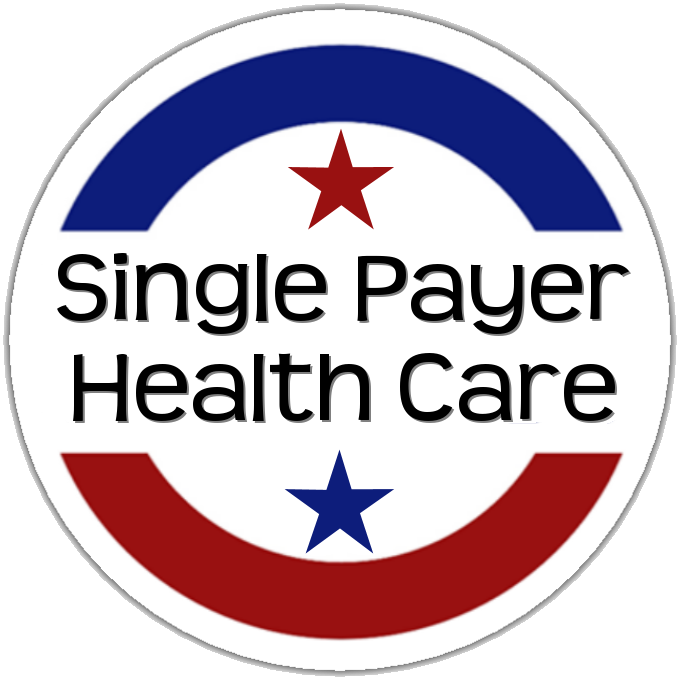 Finally, Some Answers!
Finally, Some Answers!
A Single-Payer Healthcare Forum, Including What Does SINGLE PAYER Mean?
Location: Quimper Unitarian Universalist Fellowship, 2333 San Juan Ave., Port Townsend, WA
When: Saturday, November 22, 12:30 – 2:30 p.m.
Sponsors: Jefferson County Citizens for Healthcare Access
League of Women Voters Clallam County
Healthcare for All – Washington
Moderator: Bertha Cooper, League of Women Voters Clallam County
Panel: Rep. Steve Tharinger, 24th Legislative District
Dr. Ken Fabert, Physicians For a National Health Plan
Matt Ready, Board Member, Jefferson Healthcare
Patrick Noonan, Healthcare For All-WA, Medical Device Consultant
Please join us for a thorough dialogue of the path to achieving single-payer healthcare in Washington State. There are many questions. We’ll discuss the following and more:
Why is our current financing of healthcare unsustainable?
Are we really spending enough money to cover everyone?
How can business, retirees, families, government employees and hospitals all benefit?
How can single-payer lower our taxes?
Why are some businesses shouldering an unfair portion of the burden?
How are other businesses making extreme profits from our current system?
Where is all the money is going and what we should do about it?
What is the bill before our legislature?
Why is our current method a threat to rural hospitals and family practitioners?
How is the U.S. lagging behind other nations in what we pay and what we receive?
How many of our citizens face the terror of not having healthcare coverage?
What organizations oppose a solution? Why would they do so?
Why do uninformed citizens oppose single-payer and how we should approach them?
How can single-payer be self-funding?
Why are we discussing this at the local and state level?
Should we call it “Medicare for All?”
What are some overlooked benefits to changing our system?
Why should this be an apolitical issue?
We’ll have statements by the panel and a full hour of Q &A.
Please attend and get involved. Bring any skeptics with you.
 More information about the Washington Health Security Trust (Single Payer in WA)
More information about the Washington Health Security Trust (Single Payer in WA)
Below are links to some documents that go over more detail for the Washington Health Security Trust. Please note, the bill is being revised and will have some slight changes when it is considered for the 2015 legislative session. A new bill description and analysis will also be drafted that matches the new and improved version of the bill. The full bill text linked to below is again the version from 2013. Nonetheless, these documents will provide a lot of relevant detailed information about the WHST.
- WHST-Presentation-20141106 (2)
- WHST-by-sections-HB1085-highlights (2013 version)
- WHST BILL DESCRIPTION
- HOUSE BILL 1085 ANALYSIS
- The Bill Summary from 2013
- Full Text of HB 1085 (2013 version)
Here are some highlights:
For over twenty years, government reports, economic analyses and anecdotal accounts have repeatedly shown that Washingtonians spend more than we can afford and get less heath care than we need. We spend more than $40 billion each year on health coverage and health care, yet about a million Washington residents have no health insurance at all. Many more are underinsured. Costs of coverage are rising much faster than wages, leaving workers constantly in fear of being unable to continue to afford their health insurance or its cost-sharing requirements. Medical bills, even for people with health insurance at the beginning of illness, are the leading cause of over 50% of personal bankruptcies.
The Affordable Care Act only partially deals with the issue of affordability of health insurance and health care.
Our solution – the Washington Health Security Trust (WHST)
Health Care for All – Washington (HCFA-WA) has written legislation to create a single public trust fund, the Washington Health Security Trust. The fund is dedicated to paying for a defined set of health services for all state residents.
The WHST would, essentially, collect the money we now spend on health insurance and health care from the same sources as at present (employers, individuals, state government, and the federal government), and put those funds into the Trust. The WHST can cover high quality, comprehensive health care for all residents without additional revenue.
And some details on how the WHST will be administered:
The Washington Health Security Trust (WHST) is created to provide health coverage to all Washington residents (non-residents are covered for emergency services and transportation only). The WHST is governed by a board of trustees (Board) consisting of nine members. The Governor appoints the initial members to the Board to staggered terms. After the initial round of appointments, members of the Board will be elected by congressional district. Members of the Board may have no pecuniary interest in any business subject to Board regulation and may be removed by the Governor for failing to perform or for conflict with the public interest. The Board must appoint a financial advisory committee, a citizens’ advisory committee, and a technical advisory committee.
 Jefferson Healthcare Commissioners to consider Vote on Single Payer Bill for Washington State
Jefferson Healthcare Commissioners to consider Vote on Single Payer Bill for Washington State
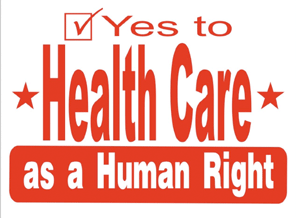 Exciting news. At todays Jefferson Healthcare Hospital Commissioner meeting, the entire board agreed to discuss and potentially vote on supporting or opposing the Washington Health Security Trust (formerly known as HB 1085/SB 5224), a bill for creating a single payer universal healthcare system in Washington State. This bill is currently under consideration for inclusion in the 2015 legislative session. If the Jefferson Healthcare board votes to support this bill, this action might help convince our 24th Legislative district representatives, Tharinger, Van de Wege, and Hargrove to also support the bill. Reps. Tharinger and Van de Wege sit on the House Health Care and Wellness Committee and Sen. Hargrove sits on the Senate Ways and Means Committee, making all of them highly influential regarding a bill like this.
Exciting news. At todays Jefferson Healthcare Hospital Commissioner meeting, the entire board agreed to discuss and potentially vote on supporting or opposing the Washington Health Security Trust (formerly known as HB 1085/SB 5224), a bill for creating a single payer universal healthcare system in Washington State. This bill is currently under consideration for inclusion in the 2015 legislative session. If the Jefferson Healthcare board votes to support this bill, this action might help convince our 24th Legislative district representatives, Tharinger, Van de Wege, and Hargrove to also support the bill. Reps. Tharinger and Van de Wege sit on the House Health Care and Wellness Committee and Sen. Hargrove sits on the Senate Ways and Means Committee, making all of them highly influential regarding a bill like this.
Stay tuned for more information. Whether our district votes to support or oppose the bill, November 19 may be historic simply for the fact we may be the first public hospital district to even consider the question of supporting Single Payer at the state level at all! The commission meeting is Weds Nov 19 at 3:30pm in the Vic Dirksen Auditorium.
Update Nov 6, 2014: It now appears likely the board will use Nov 19 as an information gathering session regarding the bill for single payer. The actual vote yes or no to support the bill will most likely happen at the following regular meeting, Dec 3, 2014. This will allow the commissioners time to research and consider information from the Nov 19 session. This means if the public wishes to express opinions prior to the vote, the Nov 19 meeting is the place to do it.
More information about the Washington Health Security Trust can be found here: http://www.healthcareforallwa.org/
Update Nov 12, 2014: Below are links to some documents that go over more detail for the Washington Health Security Trust. Please note, the bill is being revised and will have some slight changes when it is considered for the 2015 legislative session. A new bill description and analysis will also be drafted that matches the new and improved version of the bill. The full bill text linked to below is again the version from 2013. Nonetheless, these documents will provide a lot of relevant detailed information about the WHST.
 Hospital Commission Update
Hospital Commission Update
What’s Happening?
People often come up to me and ask how it’s going on the commission. My short answer: Great! My long answer: Great- but not easy. Here is a brief summary of some of the work I’ve done with my fellow commissioners (this is by no means a complete list!):
- Complete revisit and rewrite of Board Governing policies. The board has devoted many long hours to improving and clarifying the policies that define board governance and we are getting very close to a version we can publish and begin following. There are quite a number of positive changes contained in the new version- and I will give a more detailed look at these changes in a later post. For now, stay tuned! I strongly believe this work is a critical step in greatly improving our board governance.
- Community Health Needs Assessment: I believe a best practice in community health is for a thorough community health needs assessment be performed at least every 3 years. Once in office, I joined Commissioner Buhler on the team working with the Health Department, school districts, County, and more to help perform just such an assessment for Jefferson County. Much of the data can be found on the Jefferson County Public Health website. I believe a final summary report will be created that highlights the top priorities identified. (Here is a sneak peek: The number 1 priority is mental health and chemical dependency care!)
- Connecting Community Needs with the New Building Project: At the request of myself and my fellow commissioners, a detailed study and presentation was performed which evaluated the new building project in relation to impact on community health needs. You can listen to the presentation and discussion here (although you won’t be able to see the data and slides we are discussing!). This work was critical for me in evaluating the new building project.
- Community Health Improvement Work in area of Mental Health and Chemical Dependency: Even though the final Community Health Needs report is not yet published, everyone involved in the community health needs assessment felt the need to begin immediate action to work to address the growing mental health and chemical dependency challenges in our community. Collaborative work has begun involving many of the stakeholders in this area with more meetings scheduled. I am extremely excited and hopeful about positive substantive outcomes from this work!
- Audio Recordings of all public Hospital Board Meetings: A final item I am very pleased about is that at the April 16, 2014 commission meeting, the Jefferson Healthcare board unanimously voted to audio record all board meetings and publish these recordings on the hospital district website. I am extremely proud of the board for taking this enormous step in transparency for our constituents. Once in a while, the board delves into some pretty interesting topics or has interesting discussions of proposals. Now, if you are curious, you can listen to the exact dialogue of these talks.
Audio Recordings Note
As I stated above, Jefferson Healthcare is now making audio recordings of all public commission meetings! You should be able to find the recordings very soon after the meeting adjourns on the hospital district website. I will also provide links to the recordings if you follow the link “Commission Recordings” at the top of this page.
From time to time, I may include the recording in the blog on this site when I wish to highlight a specific discussion or issue from a meeting.
